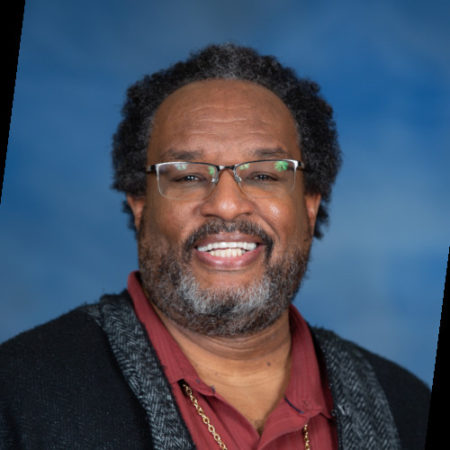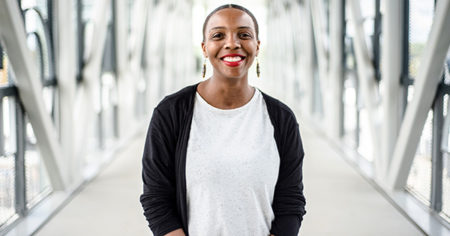While mental health may be a somewhat popular topic amidst the stressful world that we are a part of, we rarely discuss mental health from an African American perspective. We sat down to further explore this intersection with Dr. Brian Ragsdale, a Clinical Psychologist, social justice educator, as well as Senior Core Faculty at Walden University to examine not only what mental health means but also what it might look like for African-Americans today.
Chante’ Gamby (CG): What does mental health look like in the African-American community?

Dr. Ragsdale (BG): We look at mental health as black people based on our experiences. We are [actually] one of the most mentally healthy people. As you look at what our experiences are, what we have gone through in our country, how we are able to cope, and how we are able to connect with each other, that shows resiliency. There are ways as a people that we have always cared for each other. People came to me as a psychologist after many years of struggling, but then after having these conversations, they find out that the wisdom was already there. Mental health are those accepted behaviors as a group that we define as mentally healthy—[It involves] taking care of mind, body, and spirit.
CG: But, what about the trauma that African-Americans have experienced as a group? Does that impact our mental health?
BG: That is a double coin. If I talk to you about your trauma, then I must talk to you about your resiliency. If you have been traumatized, and you come to my practice, and you can come to my door and tell me what happened, then there is some resiliency there. I am not saying to ignore either side of the coin, but we must be careful when we ingest the intergenerational narrative. The narrative is real, but there is also a resiliency there for us as a people.
CG: What should I expect from a mental health provider?
BG: As a black person, the therapist should have some understanding of how racism impacts mental health. You interview the therapist just as you would any professional-pick 2 or 3 therapists, and you interview them to find a good fit. You already have tools. It is like going for a tune-up for your car; you are going to work on a problem and gain some additional tools. You also want to make sure that you are working towards a goal. Psychotherapy is one of the many ways to be helped, having supportive friends and family can also be helpful.
CG: You seem to be passionate about mental health and social justice, particularly within the prison system. Why is it important for black people to consider what having the experience of being incarcerated means for the African American community?
BG: We often look at our mental health outside of the entire African diaspora in black communities. But what happens to those in prison are the same institutional practices that are happening to us as black people. We know that every black person has been connected to someone that has been incarcerated at some point. If we are talking about mental health, then we have to talk about what impacts the black family, and one of the major things that affects the black family is the prison system.
CG: Speaking of the black family and Mother’s Day being this month, can we speak more about being a black mother and why that is important to our mental health?
BG: The reason why we need to talk about black mental health from the black women’s perspective is because black women have a vital role in black mental health and carrying the culture. Black women are so important to our survival as a people. Having aunts and other caregivers within the black family, we can see the strength of mental health through those connections. We have a lineage of powerful black women who had also had other black women to support them. So, a supportive network is essential to both the black woman and the black family.
CG: You mentioned the importance of understanding identity when understanding mental health. How do we work with those multiple identities?
BG: As an openly black gay man, I feel like it is vital to honor different lives. I think with multiple identities, one can experience different aspects of identity based on the environment. One part of my identity may be more connected to someone than the other part [in various situations]. There must be space for being black and also having various identities within that.
 CG: So, what can folks do if they feel that they are not in a space that allows them to be open about their identities and may create mental health stress?
CG: So, what can folks do if they feel that they are not in a space that allows them to be open about their identities and may create mental health stress?
BG: Well, you must be safe in the environment that you are in. The coming out process where you could be harmed may not be the best time to come out in my professional and personal opinion. We know that there are heightened instances of domestic violence and tension right now. However, there may also be opportunities to educate others about our identities, but it must be done carefully.
CG: What recommendations do you have for folks who may be interested in getting therapy within their various identities?
BG: We have the Association of Black Psychologists, the Black Mental Health Directory, and Psychology Today to help people find counselors, but we should also practice being kind and compassionate to each other. Slowing things down, using these times to engage in other health practices such as exercising, journaling, staying connected, and seeking additional support can help as well.
To find out a black therapist near you, check out the following websites: https://www.abpsi.org/find-psychologists/, https://www.blackmentalhealthdirectory.com/, and https://www.psychologytoday.com/us.